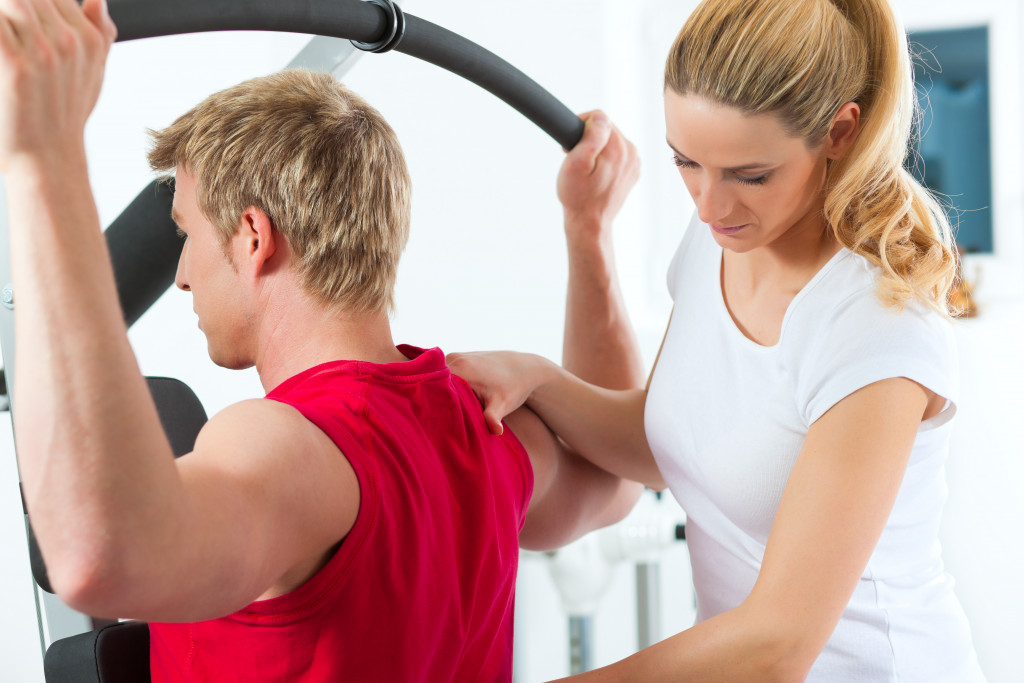There is nothing more emotionally and mentally debilitating for an athlete or a physically fit person than a physical injury. One aspect of recovery that not a lot of people talk about is the importance of caring for your mental and emotional health while you undergo the physical rehabilitation process.
Here are some tips and pointers to maintain your mental health while you go through physical therapy for an injury.
Honor your frustration by talking it out.
Experts say that suppressing or ignoring our emotions, especially negative ones, is bad for us. It can cause symptoms of depression and anxiety and can create stress in our bodies and minds. And this emotional stress can manifest into physical symptoms, adding even more harm to our already injured bodies.
No matter how trite it may sound, a big part of healing from our physical injury is learning to honor our negative emotions. Even something as simple as verbalizing how sad you are about being stuck at home or not being able to engage in your favorite sport can go a long way in helping you process your disappointment. Find someone you trust and you know loves you, and open up to them about how you’re doing. If this is difficult for now, write it down in a journal. Words have therapeutic power and naming your wounds just might help you heal from them.
Be kind to yourself.
If you find yourself going over the details of the injury and what you could have done to prevent it, find ways to stop these thoughts dead in their tracks. All it does is cause you to blame yourself over and over again, and beating yourself up is not the most productive use of your time.
Yes, talk it out with your trusted friend or family member, but don’t dwell on these thoughts when you’re alone. Instead, speak kindly to your mind and heart, and encourage yourself the way you would an injured friend. Think about the lessons you can take away from the experience instead of the should’ve, would’ve, and could’ve.
Consult with your doctor about supplementary therapies.
 Consult with your primary care provider about what supplementary therapies can help speed up the process of your recovery, like counseling or a visit to an acupuncture clinic. There might be other treatments and therapies that can go hand in hand with your physical therapy. Just make sure it’s approved and recommended by your doctor.
Consult with your primary care provider about what supplementary therapies can help speed up the process of your recovery, like counseling or a visit to an acupuncture clinic. There might be other treatments and therapies that can go hand in hand with your physical therapy. Just make sure it’s approved and recommended by your doctor.
Set S.M.A.R.T. goals.
If you’re an athlete or a fitness buff, then you must know the value of setting S.M.A.R.T. (specific, measurable, attainable, relevant, and time-bound) goals. Your penchant for physical fitness makes you a natural goal-setter, and now is the time to put these gifts to use. But because you’re injured, you might need to rein in these tendencies so you don’t hurt yourself further. Set S.M.A.R.T. goals and accept your limitations for now—it will help you move forward step by step until your body returns to its 100 percent capacity, all while keeping your expectations in check and thus, protecting your mental health.
Get an accountability buddy.
If you were the type who centered your sport or physical activity around other people, then your rehabilitation process should also be social. Find one of your friends who share your passion for this specific sport and workout, and ask for their help or to accompany you whenever you do physical therapy, whether at the clinic or at home. Just be safe and smart—wear masks around each other and keep a physical distance of at least six feet.
Focus on what you can control now.
When you’re physically injured, it’s tempting to think that everything is out of your control, but that’s not true. You still have control over what you consume, whether it’s food, social media, pop culture, or headlines. If you were a healthy eater before your injury, keep that habit even while you recover. Avoid reaching for comfort food whenever you find yourself sad. If seeing others out and about on social media aggravates your negative emotions, consider giving yourself a social media break. The same goes for upsetting headlines. Do everything in your power to maintain your mental wellness.
If you’re an athlete, a dancer, someone who uses kinetic skills for a living, or just someone who enjoys keeping yourself healthy through physical activity, you need to anticipate that you’ll suffer from a physical injury at some point. But as always, prevention is better than therapy or cure—so make sure that your always doing your sport or activity in ways that protect your body from injury.

